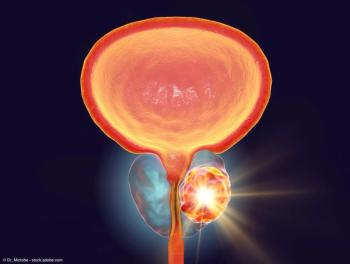
Conference Coverage
Latest News

The UroOnc Minute: Adjuvant Therapy in Renal Cell Carcinoma, with Brian Shuch, MD

Pearls & Perspectives: Modern Semen Testing and Male Fertility Care, with Thomas Masterson, MD

Phase 1/2 trial launches of molecular glue degrader for ccRCC

FDA approves sildenafil oral film for men with erectile dysfunction

URO-1 prostate biopsy devices adopted across Novant Health System as clinical study continues

Shorts










Podcasts
Videos
Urology Times Digital Edition







Continuing Medical Education
All News

The conversation explores evolving strategies that have further lowered infection risk, including no-touch principles, chlorhexidine skin preparation, antibiotic and customizable implant coatings, and growing interest in antiseptic-based solutions rather than antibiotics alone.



At 24 months, apalutamide demonstrated a statistically significant improvement in OS vs darolutamide without concurrent docetaxel.

Amy Pearlman, MD, sits down with Katherine A. Amin, MD, to discuss the evolving landscape of female pelvic medicine, overactive bladder management, and fellowship training.

The application is seeking approval of Signatera CDx as a companion diagnostic to select patients with MIBC for treatment with adjuvant atezolizumab.

A recap of the FDA submissions and regulatory decisions in urology from January 2025.

ANDROMEDA is looking to build on previous findings from the LUNAR trial in recurrent, oligometastatic prostate cancer.

The conversation highlights the steady pace of innovation in urogynecology.

Cooled laser focal therapy with the ProFocal Device showed promising cancer control in patients with localized prostate cancer.

In this episode, Amy Pearlman, MD, speaks with Phillip M. Pierorazio, MD, about integrating mindfulness and wellness into a demanding surgical career and the evolving complexities of modern prostate cancer care.

The combination was tolerable and demonstrated promising early efficacy as a 3rd-line option for patients with mCRPC.

Beyond operative technique, the episode addresses patient counseling, including expectations around fertility, anejaculation, and postoperative complications such as chyle leak.

The report highlights key trends in cancer treatment and outcomes, including detailed analyses across 3 cancer types: prostate, esophageal, and melanoma.

AVA-291 is a differentiated formulation of testosterone designed to retain androgen activity while resisting aromatization.



























